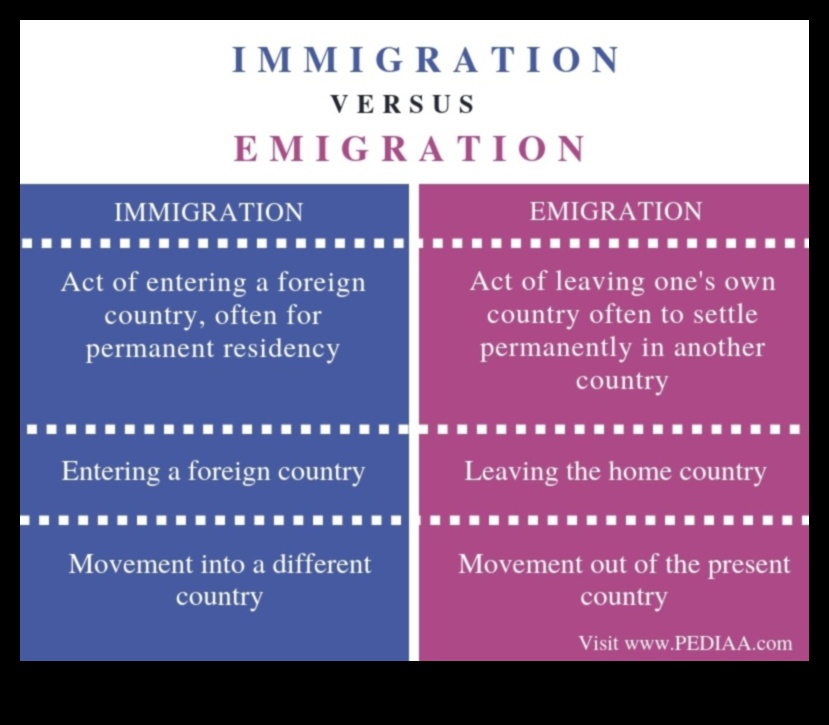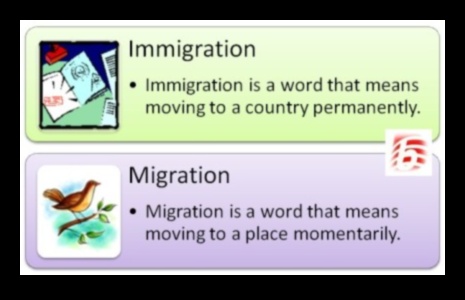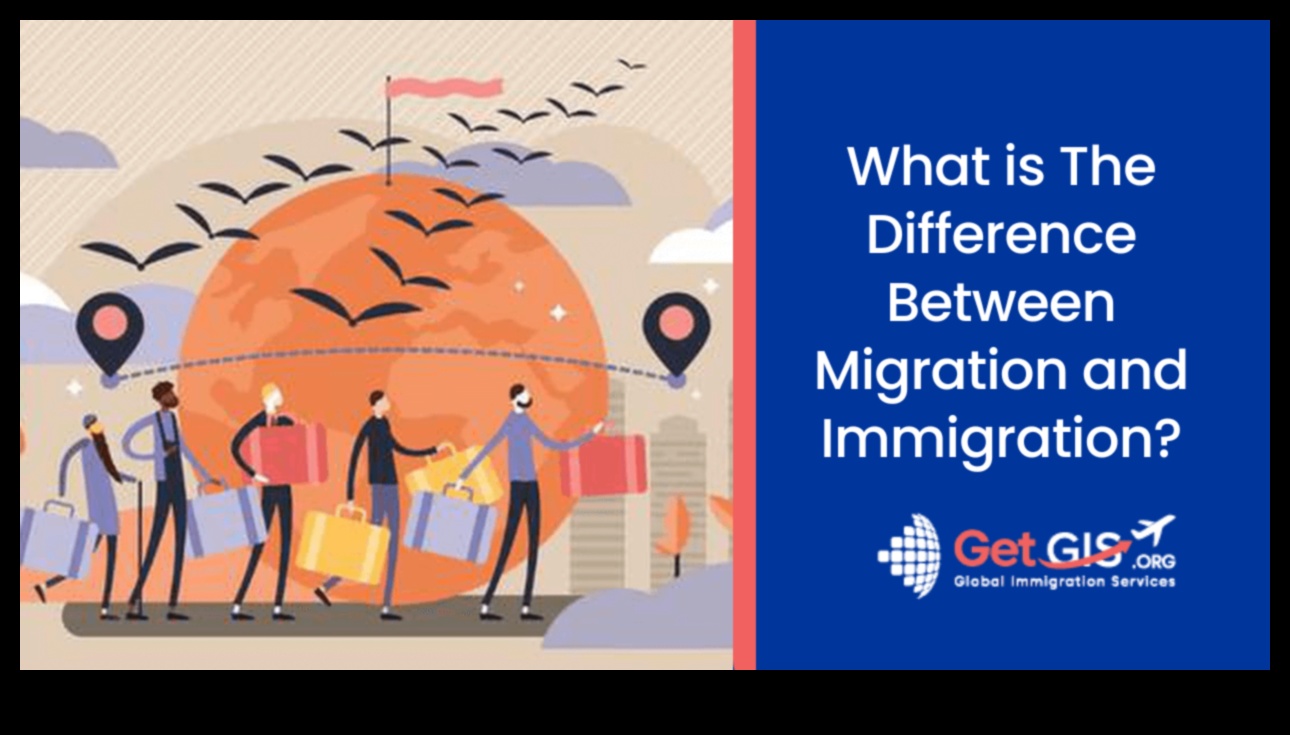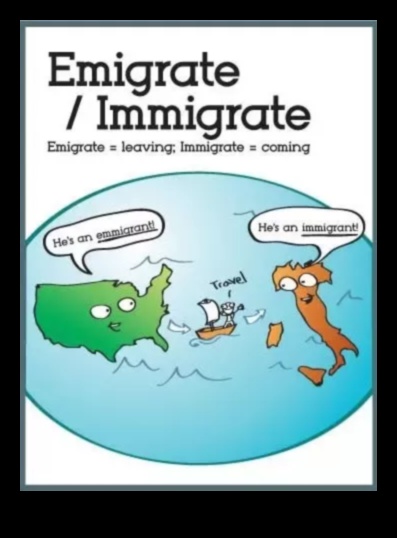
I. Introduction
II. What is a migrant?
III. What is an immigrant?
IV. Are migrants and immigrants the same?
V. Differences between migrants and immigrants
VI. Why do people migrate?
VII. The impact of migration
VIII. The challenges of migration
IX. The benefits of migration
X. FAQ
| Topic | Answer |
|---|---|
| I. Introduction | Migration is the movement of people from one place to another. |
| II. What is a migrant? | A migrant is someone who moves from one place to another, either temporarily or permanently. |
| III. What is an immigrant? | An immigrant is someone who moves to a new country to live permanently. |
| IV. Are migrants and immigrants the same? | No, migrants and immigrants are not the same. Migrants can be temporary or permanent, while immigrants are always permanent. |

II. What is a migrant?
A migrant is a person who moves from one place to another, usually for a long period of time. Migrants may move for a variety of reasons, including economic opportunity, political instability, or environmental factors.
IV. Are migrants and immigrants the same?
Migrants and immigrants are often used interchangeably, but there is actually a difference between the two terms.
A migrant is someone who moves from one place to another, either temporarily or permanently. An immigrant, on the other hand, is someone who moves to a new country and becomes a permanent resident or citizen.
There are a number of factors that can motivate people to migrate, including economic opportunities, political instability, or environmental disasters.
Migrants and immigrants can have a significant impact on the countries they leave and the countries they move to. In some cases, migration can lead to economic growth and development, while in other cases it can lead to social tensions and conflict.
The debate over whether or not migrants and immigrants are the same is a complex one. There are no easy answers, and the best way to understand the issue is to consider the specific circumstances of each individual case.

IV. Are migrants and immigrants the same?
No, migrants and immigrants are not the same. While both terms refer to people who have moved from one country to another, there are some key differences between the two.
First, migrants are not necessarily permanent residents of the country they have moved to. They may be staying in the country for a short period of time, or they may be planning to return to their home country at some point in the future. Immigrants, on the other hand, are people who have moved to a new country with the intention of staying there permanently.
Second, migrants may or may not have the legal right to live in the country they have moved to. Immigrants, on the other hand, must have the legal right to live in the country they have moved to in order to be considered an immigrant.
Finally, migrants may or may not be citizens of the country they have moved to. Immigrants, on the other hand, must become citizens of the country they have moved to in order to be considered an immigrant.
In general, migrants are people who are in the process of moving to a new country, while immigrants are people who have already settled in a new country and have the legal right to live there permanently.
Differences between migrants and immigrants
Migrants and immigrants are often used interchangeably, but there are actually some key differences between the two terms.
Migrants are people who move from one place to another, usually for a temporary period of time. They may be moving for work, education, or family reasons.
Immigrants are people who move to a new country and become permanent residents or citizens. They may have been born in another country, or they may have moved to their new country as adults.
The main difference between migrants and immigrants is the length of their stay in their new country. Migrants typically stay for a shorter period of time, while immigrants stay for a longer period of time or permanently.
There are also some other key differences between migrants and immigrants, such as their legal status, their reasons for moving, and their integration into their new country.
Legal status
Migrants may be legal or illegal residents of their new country. Immigrants are typically legal residents or citizens of their new country.
Reasons for moving
Migrants may move for a variety of reasons, such as work, education, or family reasons. Immigrants may also move for these reasons, but they may also move for political or humanitarian reasons.
Integration
Migrants may or may not integrate into their new country. Immigrants are typically expected to integrate into their new country.
It is important to note that these are just general differences between migrants and immigrants. There are always exceptions to the rule.
Overall, migrants and immigrants are two distinct groups of people with different legal statuses, reasons for moving, and levels of integration into their new country.

VI. Why do people migrate?
There are many reasons why people migrate. Some of the most common reasons include:
- Economic opportunity: Many people migrate in search of better economic opportunities. They may be looking for higher wages, more job opportunities, or a better quality of life.
- Political instability: People may migrate to escape political instability or persecution. They may be fleeing from war, violence, or discrimination.
- Environmental factors: People may migrate due to environmental factors such as climate change, natural disasters, or environmental degradation.
- Family reunification: Many people migrate to reunite with family members who have already migrated.
- Other reasons: There are many other reasons why people migrate, including educational opportunities, cultural reasons, or simply a desire to explore new places.
VII. The impact of migration
Migration can have a significant impact on both the sending and receiving countries.
On the sending side, migration can lead to a number of benefits, including:
- Remittances: Migrants often send money back to their home countries, which can help to boost the economy.
- Skills transfer: Migrants can bring new skills and knowledge to their home countries, which can help to improve the economy.
- Brain drain: However, migration can also lead to a brain drain, as some of the most skilled and educated people leave their home countries in search of better opportunities.
On the receiving side, migration can also have a number of benefits, including:
- Increased labor force: Migrants can help to fill labor shortages in the receiving countries.
- Economic growth: Migration can lead to economic growth in the receiving countries.
- Cultural diversity: Migrants can bring new cultures and perspectives to the receiving countries.
However, migration can also have a number of challenges, including:
- Discrimination: Migrants can face discrimination in the receiving countries.
- Social tensions: Migration can lead to social tensions between the migrants and the native population.
- Crime: Migration can lead to an increase in crime in the receiving countries.
Overall, the impact of migration is complex and depends on a number of factors, including the sending and receiving countries, the type of migration, and the policies that are in place.
The challenges of migration
Migration can have a number of challenges, both for the migrants themselves and for the communities they move to.
Some of the challenges that migrants face include:
- Language barriers
- Cultural differences
- Discrimination
- Lack of access to education and healthcare
- Unemployment
Migration can also have a number of challenges for the communities that migrants move to. These challenges include:
- Increased competition for jobs and housing
- Changes to the local culture
- Increased crime rates
- Increased social tension
Despite these challenges, migration can also have a number of benefits, both for migrants and for the communities they move to.
Some of the benefits of migration include:
- Increased economic growth
- New skills and ideas
- Greater cultural diversity
- Strengthened international relations
The challenges and benefits of migration are complex and multifaceted. There is no easy answer to the question of whether or not migration is a good thing. However, it is important to be aware of the challenges and benefits of migration in order to make informed decisions about how to manage migration.
IX. Benefits of migrationMigration can have a number of benefits for both migrants and the countries they move to.
For migrants, migration can provide opportunities for economic advancement, education, and social mobility. Migrants often move to countries with higher wages and better job opportunities, which can help them to improve their financial situation and provide a better life for their families. Migration can also provide access to better education, healthcare, and other social services.
For the countries that migrants move to, migration can bring economic benefits, such as increased productivity, innovation, and economic growth. Migrants often bring new skills and knowledge to their new countries, which can help to boost the economy. They can also fill labor shortages in certain industries, such as construction and healthcare.
However, it is important to note that migration can also have some negative consequences, such as increased competition for jobs, housing, and other resources. It can also lead to social tensions and conflict.
Overall, the benefits of migration are generally outweighed by the costs. Migration can provide migrants with opportunities for a better life, and it can also benefit the countries that they move to. However, it is important to manage migration in a way that minimizes the negative consequences and maximizes the benefits.
X. FAQ
Q1: What is the difference between a migrant and an immigrant?
A migrant is someone who moves from one place to another, either temporarily or permanently. An immigrant is a person who has moved to a new country and has been granted citizenship or permanent residency.
Q2: Are all migrants immigrants?
No, not all migrants are immigrants. Some migrants may only stay in their new country for a short period of time, while others may eventually become citizens or permanent residents.
Q3: What are the benefits and challenges of migration?
There are many benefits and challenges associated with migration. Some of the benefits include increased economic opportunities, cultural exchange, and the spread of new ideas. Some of the challenges include language barriers, discrimination, and social isolation.